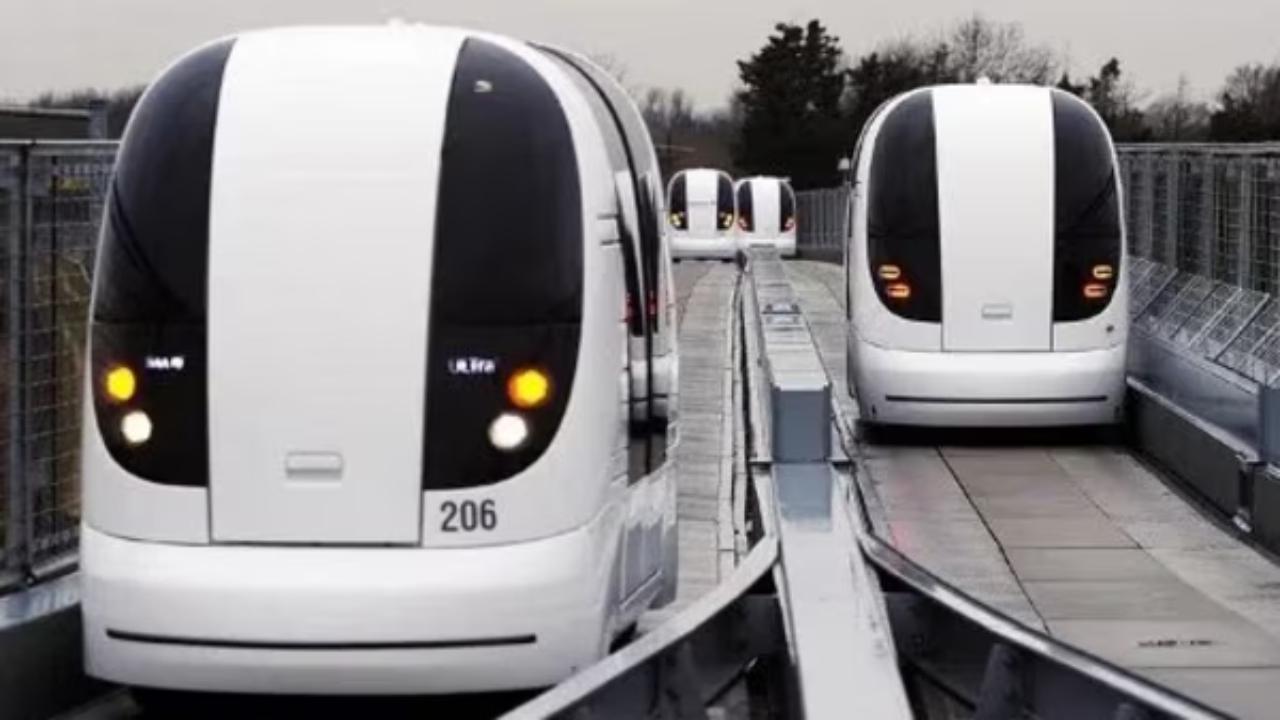Mumbai: Pod taxi service to be launched for easy commute to Bandra-Kurla Complex

The Maharashtra government Tuesday announced that a pod taxi service will be launched to ease commute to the business hub of Bandra-Kurla Complex.
The Mumbai Metropolitan Region Development Authority (MMRDA) has approved a pod taxi service on the 8.8 km route between Bandra and Kurla railway stations, the chief minister`s office said in a release.
With a capacity of six passengers each, the pods will run at the speed of 40 km per hour and will have 38 halts, it stated.
The project will be implemented on a public-private partnership basis and will ease the commute to BKC from the two railway stations.
Maharashtra Chief Minister Eknath Shinde’s office posted on X, “`Pod taxi` will run between Bandra and Kurla station through Bandra-Kurla complex and its distance is 8.80 km. That`s it. It will have 38 stations. It has a capacity of six passengers per pod. Maximum 40 Km. The Chief Minister @mieknathshinde today approved the launch of this project on a Public-Private Partnership basis, which will have a speed of 1 hour per hour. This project will help make the journey from Bandra station to BKC more convenient.”
Meanwhile, the civic-run Brihanmumbai Electric Supply and Transport (BEST) undertaking has revised its bus pass rates from March 1, the BEST undertaking said on Thursday.
The revised rate of the daily and monthly unlimited journey pass will be Rs 60 and Rs 900, respectively, up from the existing Rs 50 and Rs 750, the city`s premier road transport entity said in a release. “The bus pass rates were revised to overcome the problem of loose change, avoid the insecurity of daily cash handling, facilitate passengers to avail the undertaking`s scheme and to increase income,” an official said.
No change has been made in the rate, validity and unlimited number of journeys of student passes that cost Rs 200, and the Rs 50 concession in various bus passes for senior citizens, excluding weekly passengers, has also not been changed, the release said. “In this revision, the types of bus passes have been reduced to 18 from the existing 42, discontinuing other types of passes. Only three types of bus passes, namely weekly, monthly, and unlimited, can be availed from March 1 instead of existing daily, weekly, monthly, fully flexible plans pass, and unlimited journeys pass,” the release informed.
The existing single day passes that are valid for two, four, and 10 journeys and fully flexible plans passes that are valid for 10, 30, and 50 journeys during an 84-day period have been discontinued, as per the release.
In the revised plans, BEST undertaking has kept the bus pass value as per the four fare slabs of Rs 6, Rs 13, Rs 19, and Rs 25 for daily, weekly, and unlimited journey passes, it said.
As per revised rates, the minimum value of a weekly bus pass with a validity of seven days and 15 journeys will be Rs 70 instead of the earlier Rs 59, and the maximum value will be Rs 350 instead of earlier Rs 299.
In the existing bus pass plans, the minimum value of a pass was Rs 9 for a single-day pass valid for one day or two journeys, and the maximum was Rs 1499 valid for 28 days or 150 journeys. “As per the revised bus pass plans, the minimum pass value will be Rs 60 for an unlimited number of journeys in one day, and the maximum pass value will be Rs 2700 for 28 days or 150 journeys,” the release said.
The release said BEST had revised the bus pass rates in less than a year as the existing rates came into effect on April 7, 2023. A spokesperson said, till date, BEST has issued 10,40,965 closed loop cards, through which bus passes are issued. BEST, which operates buses in the metropolis and adjoining areas in Thane, Mira Bhayander and Navi Mumbai, ferries 25 lakh passengers everyday. (With inputs from PTI)

Atul Tiwari is a seasoned journalist at Mumbai Times, specializing in city news, culture, and human-interest stories. With a knack for uncovering compelling narratives, Atul brings Mumbai’s vibrant spirit to life through his writing.





